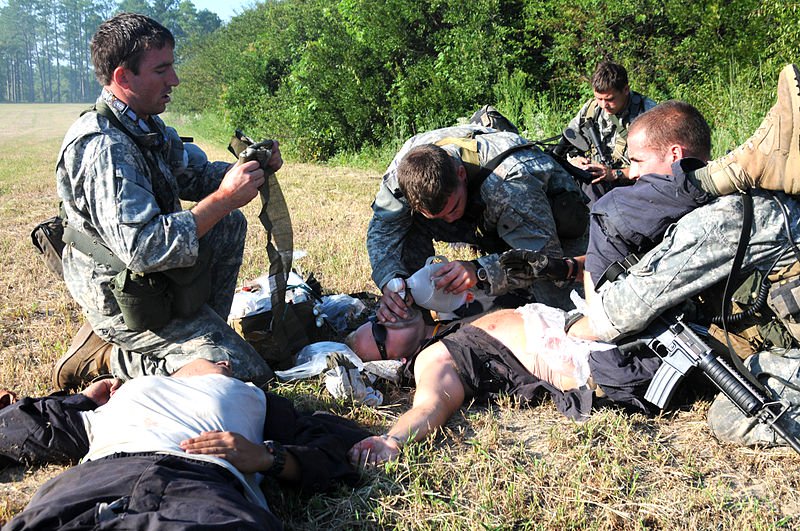When the United States was supporting several counter-narcotics operations in the Andean Ridge countries, bases were set up with host nation forces along with US Army Special Forces and Navy SEALs. Working in conjunction with DEA and other American government agencies, the special operations forces and host nations had the difficult job of trying to eradicate the illegal drug trade.
The local farmers and people looked upon the Americans as the enemy. As the people who were trying to stop them from putting food on their tables. As a side note, it is important to note that in many areas, the growing of the coca plant is not illegal. The locals have been growing it for centuries and there is a valid legal market for it as tea and medicine. The growing areas of the Chapare and Beni regions of Bolivia are about the size of New Jersey.
The narco-traffickers convinced the farmers that the “gringos” were here to starve them out. Often, there would be demonstrations outside the bases with Campesinos blocking the roads and throwing quarter sticks of dynamite. How did the US counter these? With the medics.
Politics would take a back seat to necessity. Medics would run a sick call and at times it would stretch far down the road. Women would walk for miles over mountain paths to have their children born in the “gringo hospital” on the base. Sick children and people injured during the logging season were frequent guests of the base.
These sick calls to the clinic were a great rapport building opportunity for the teams. Some of the people protesting the US presence a week before were back and asking for help treating their sick children and wives. The gringos weren’t the ogres they were made out to be after all and some people were so grateful, they named their childrenafter the medics who delivered them.
Special Forces medics in the Chapare area of Bolivia alone were responsible for a tremendous amount of goodwill. The local counter-narcotic troops (UMOPAR) started having their families show up as well.
During the civil war in El Salvador, the border region with Honduras was at times a dangerous place. The mountainous area was frequently a place where the militaries of both countries were not particularly known for their respect for human rights. As usual, it was the farmers who were caught in the middle.
SOCOM tried to bolster the Honduran government’s image in this area by sending in Humanitarian Assistance Teams. US Army doctors, dentists, veterinarians along with Honduran medical teams and a bunch of Special Forces medics would visit the area where the locals had never seen any of the specialists mentioned above.
The Honduran faces would be put out front although the US would do the heavy lifting and use helicopter assets to airlift the teams to visit various locations in the country. Honduran infantry with a sprinkling of SF troops provided the security.
PSYOP teams dropped leaflets in the areas to tell the locals about the coming of the teams. On the last one, about 500-750 locals were expected. But the word had gotten out. Nearly 10,000 people showed up in this tiny village. What was supposed to be a one-day operation, turned into a 3-day marathon. The medics, as usual, did the heavy lifting. There were much more of them than doctors and they gained tremendous respect and rapport for our follow-on operations.
The lines were so long to be seen, the rest of the SF guys were pressed into service helping with inoculations, dentistry, and veterinary work. On-the-job training as a dentist…Just call me “Painless”, but that is a story for another time.
A successful mission of Special Operations doesn’t always come at the tip of the spear, although at times that is exactly what is needed. For those times when the opposite approach is needed, the medics can be the most valuable members of the team.
Photo courtesy of US Army
This article was originally published on SpecialOperations.com and written by










COMMENTS